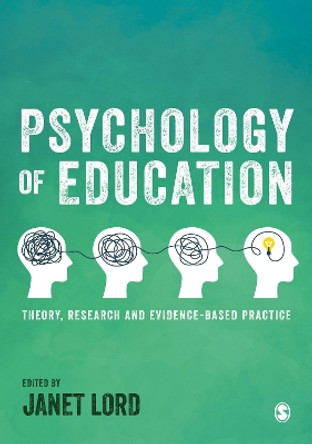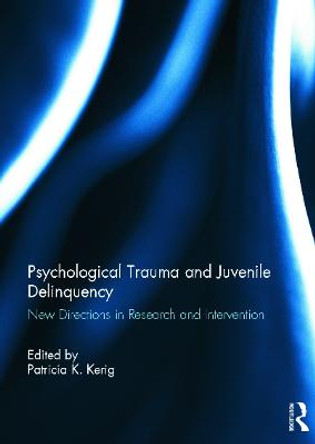Description
About the Author
Ph.D. University of Chicago
Reviews
PART I: THE FRAMEWORK. 1. THE PEOPLE AND THE FIELD. Stereotypes and the New Senior Citizen. A Demographic Perspective on the People. An Age Revolution. A Revolution in Social Roles. Women and Later Life. Minorities and Later Life. A Historical Perspective On The Field. The Perspective and Plan of this Book. Key Terms. Recommended Readings. 2. THEORIES AND RESEARCH METHODS. Age-Irrelevant Theories. A Behavioral Perspective on Aging. A Psychoanalytical Perspective on Aging. A Behavioral Genetic Perspective on Aging. Age-Change Theories. Tasks linked to Age: Erik Erikson's Psychosocial Crises. A Single Shift in Midlife: Carl Jung's Passage toward Maturity. Adapting to Development and Decline: Paul Baltes's Selective Optimization with Compensation. Synthesizing the Perspectives: The Contextualist. Life-Span Developmental Approach. Research Methods. Cross-sectional Studies. Longitudinal Studies. Sequential Studies. Evaluating Any Research. Getting Much Bigger and on Occasion Much Smaller: A Final Note on Current Research Trends. Key Terms. Recommended Readings. PART II: THE PHYSICAL DIMENSION. 3. NORMAL AGING AND DISEASE PREVENTION. An Overview of the Aging Process. Biological Theories of Aging. Random Damage Theories of Aging. Programmed Aging Theories. Extending the Maximum Life Span. Normal Aging. Two Basic Principles of Normal Aging. Impact of Normal Aging on Daily Life. The Externals: Hair and Skin. The Cardiovascular System. The Nervous System. Lifestyle, Aging and Disease. Health Practices, Social Relationships and Longevity. Emotional Stress and Illness. Interventions. Key Terms. Recommended Readings. 4. SENSORY AND MOTOR FUNCTIONING. Vision. The Problem. The Visual System and Age-Related Decline. Interventions. Hearing. The Problem. The Auditory System and Age-Related Decline. Interventions. Taste and Smell. The Problem. Interventions. Motor Performance. The Pace of Responding. The Act of Taking Action. Specifics. A General Strategy for Enhancing Sensory-Motor Functioning in Old Age. Designing Housing for the Elderly. Modifying Public Spaces. Key Terms. Recommended Readings. 5. DISEASE, DISABILITY, AND HEALTH CARE. Chronic Disease versus Disability. Is Disability the Price of a Ripe Old Age? The Disability Pathway. Gender, Socioeconomic Status, and Disability. Medical Care for Disease and Disability. Dealing with Disability. Community Options for the Disabled. Nursing Home Care. Key Terms. Recommended Readings. PART III: THE COGNITIVE DIMENSION. 6. INTELLIGENCE. Intelligence as Measured by Traditional Tests. Interpreting the Findings: A Two-Factor Theory of Intelligence. Unraveling the Truth about Change: The Seattle Longitudinal Study. Speed, Health, Mental Activity, Stability, and Decline. New Conceptions and Tests of Adult Intelligence. Robert Sternberg's Tests of Practical Intelligence. Nancy Denney's Non-Exercised and Exercised Abilities. A Neo-Piagetian Perspective on Adult Intelligence. Concluding Questions and Criticisms. Specifics: Intelligence in Action. Wisdom. Creative Achievements. Interventions. Improving Performance on I.Q. Tests. Enhancing Wisdom. Key Terms. Recommended Readings. 7. MEMORY AND DEMENTIA. Memory. The Tests and the Findings. An Information-Processing Perspective on Memory. A Memory Systems Perspective on Memory. Measuring Everyday Memory. Memory for the Future and Memory of the Past. Interventions. Dementia. The Demography of Dementia. Vascular Dementia. Alzheimer's Disease. Interventions. Key Terms. Recommended. PART IV: THE EMOTIONAL DIMENSION. 8. PERSONALITY. Setting the Stage. Personal Conceptions about Change. Problems of Measuring Change. The Great Consistency. Change Debate. Phase 1: Focus on Change: The Kansas City Studies of Adult Life. Phase 2: Focus on Stability: Costa and McCrae's Big Five Traits. Phase 3: Focus on Change: Exploring Life-Stories, Goals, Priorities, and Hopes. Do We Grow More Mature with Age? Old Age: Season of Stress or Period of Peace? Interventions. Key Terms. Recommended Readings. 9. PSYCHOPATHOLOGY. The Problems. Scope and Age Patterns. Specific Disorders. Alcoholism. Phobias. Depression. Biological Approaches to Mental Health. Older Adults and the Mental Health System. Interventions. The Diagnostic Evaluation. Chemotherapy. Psychotherapy. Too Little Mental Health Care in Long Term Care. Key Terms. Recommended Readings. PART V: THE SOCIAL DIMENSION. 10. THE OLDER FAMILY. Older Married Couples. The Positive Reality: Increasing Harmony. The Negative Possibility: Decreasing Passion. Sexuality in Later Life. The Social Framework. Age Changes in Sexual Responsiveness. Age Changes in Sexual Interest and Activity. Factors Affecting Sexuality in Middle and Later Life. Interventions. Parents and Children as Adults. Quantity versus Quality. Caring for an Ill Parent. Interventions. Grandparenthood. Varied and Flexible Grandparent Roles. Grandparent Barriers. Interventions. Key Terms. Recommended Readings. 11. LIFE TRANSITIONS: RETIREMENT AND WIDOWHOOD. Retirement. Setting the Context. The Drive to Retire. The Consequences: Life as a Retiree. Interventions. Old and Rich or Old and Poor? Widowhood. Setting the Context. Mourning. Life as a Widowed Person. Interventions. Old and Living Alone. Key Terms. Recommended Readings. PART VI: CONCLUSIONS. 12. DEATH AND DYING. Death Anxiety. Predicting Death Anxiety. Life-Threatening Illness. Religious Faith. Dying. The Person. Health Care Providers. Interventions (and Ongoing Issues). Hospice Care. Humanizing Hospital Care. Controlling the Timing of Death. Age-Based Rationing of Care. KEY TERMS. RECOMMENDED READINGS. EPILOGUE. REFERENCES. INDICES. CREDITS.
Book Information
ISBN 9780534359126
Author Janet K. Belsky
Format Paperback
Page Count 480
Imprint Wadsworth Publishing Co Inc
Publisher Cengage Learning, Inc
Weight(grams) 863g
Dimensions(mm) 236mm * 180mm * 25mm








